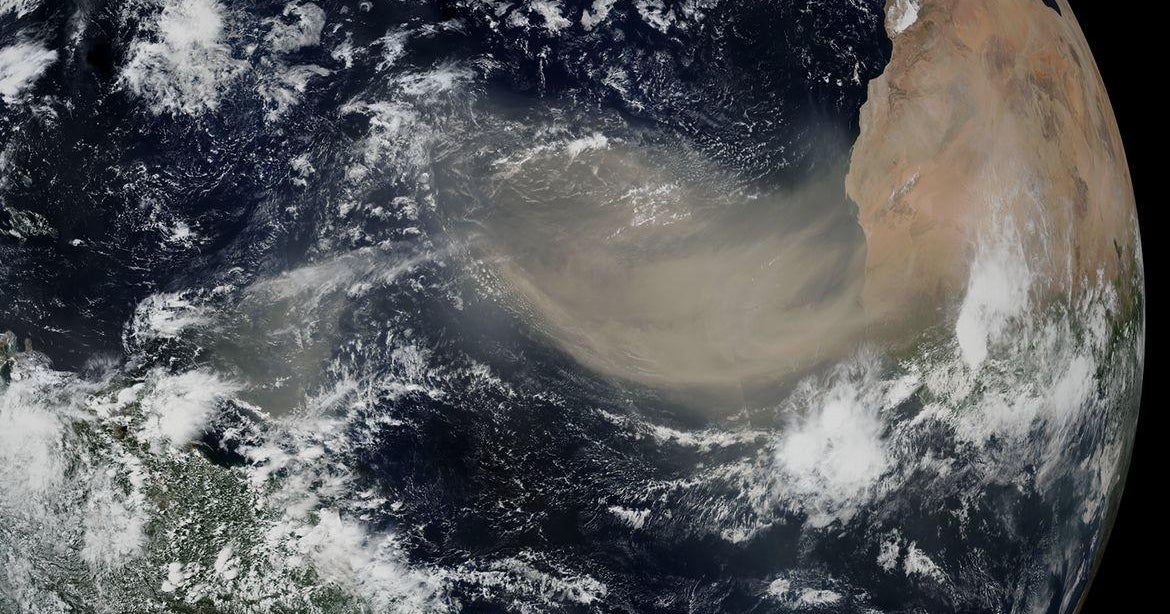
Microscopic dust from desert storms has been hiding the true extent of global warming, study finds
CBSN
Desert storms that have sent massive plumes of dust across the oceans may have a small but significant effect on global temperatures, scientists say. New research found the microscopic particles circulating through the atmosphere had a "slight overall cooling effect on the planet" that masked just how much the planet has truly warmed over recent decades.
The UCLA research, published in Nature Reviews Earth & Environment on Tuesday, found that the amount of atmospheric dust has increased by about 55% since pre-industrial times, with many ups and downs along the way. According to lead study author Jasper Kok, that increase is likely due to changes in global climate, such as wind speeds in some deserts, as well as land-use changes, such as transforming land into agriculture and diverting water for irrigation.
But the researchers say the impact of that dust has not been adequately factored into studies of global temperature trends. The overall increase in dust, according to Kok, "could have masked up to 8% of the greenhouse warming" that's taken place since the Industrial Revolution.

Washington — The Supreme Court on Thursday cleared the way for the Trump administration to deport a group of migrants with criminal records held at a U.S. naval base in Djibouti, clarifying the scope of its earlier order that lifted restrictions on removals to countries that are not deportees' places of origin.





















 Run 3 Space | Play Space Running Game
Run 3 Space | Play Space Running Game Traffic Jam 3D | Online Racing Game
Traffic Jam 3D | Online Racing Game Duck Hunt | Play Old Classic Game
Duck Hunt | Play Old Classic Game










